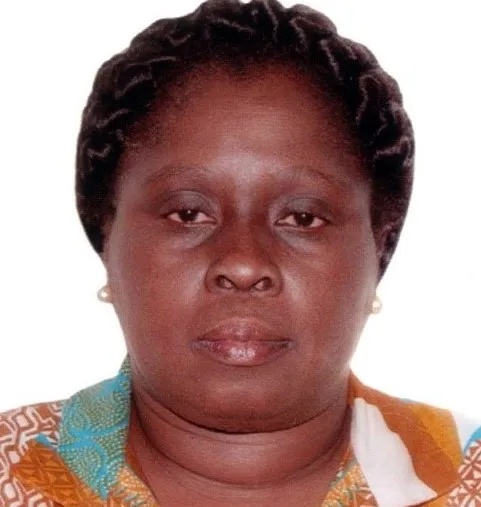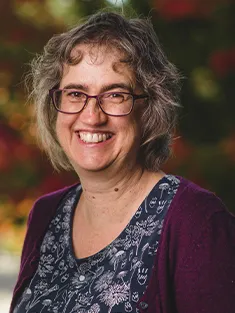Nyholm Prize for Education
Recognising inspirational, innovative and dedicated individuals or teams making a substantial and sustained impact within education.
Details
| Status | Closed |
|---|---|
| Nominations closing date | 17 June 2025 |
| Nominator eligibility | Anyone |
| Nominee eligibility | Individuals and teams |
| Nominee location | Global |
| Career stage | All career stages |
Excellence in Education prizes
Our Excellence in Education Prizes celebrate educators in primary, secondary, further education and higher education – including teachers, technicians and more. These prizes recognise a wide range of skills – from curriculum design to effective teaching, and from personal development to working culture. This category includes specific prizes for teams and for those in the early stages of their career.
Judging panel

Niki Kaiser
Notre Dame High School, UK

Genevieve Adukpo
University of Cape Coast, Ghana

Amir Ali
London Nautical School, UK

Emma Bickerstaffe
Horizon Community College, UK

James Cairney
Cumbernauld Academy, UK

Dr Alison Hill
University of Exeter, UK

Amie Langford
Manchester Metropolitan University, UK

Colin McGill
Edinburgh Napier University, UK

Stuart Naismith
Gartcosh Primary School, UK

Professor Gita Sedghi
University of Liverpool, UK
Winners
David Read, University of Southampton
For his role as an established leader in chemistry education, with a strong international profile, a long track record of cutting-edge innovation in teaching and outreach work that has reached thousands of young people in schools across the UK.
About this prize
This prize recognises inspirational, innovative and dedicated individuals or teams making a substantial and sustained impact within education.
For 2025, the prize is open to nominees based in the UK, Ireland and internationally.
- It is run annually
- It alternates between being open to nominees both in the UK and Ireland and internationally, and open only to nominations from the UK and Ireland.
- The winner(s) receives £5000, a medal and a certificate
- The winner(s) will complete a series of lectures or workshops in the UK
- The winner(s) will be chosen by the Education Prize Committee
Nominations are open now until 17:00 GMT 17 June 2025.
- The prize is open to individuals or teams working in education
- Nominees do not need to be members of the RSC
- Nominators do not need to be members of the RSC
- Individual nominees may not nominate themselves, however self-nomination is permitted for teams
- We will not consider nominations of deceased individuals
- The prize alternates between being open to nominees in the UK and Ireland and internationally, and open only to nominations from the UK and Ireland. For 2025, the prize is open to nominations from the UK and Ireland and internationally
- A team or individual can only be considered for one Excellence in Education prize in any given year. In a case where the same team or individual is nominated for more than one prize independently, RSC staff will ask the them which prize they would like to be considered for
- Individuals named in any of the following roles during the nomination and judging period are not eligible to nominate or be nominated:
- Education Prize Committee members
- RSC Subject Community Presidents
- RSC Prize Committee members
- Trustees of the Royal Society of Chemistry
- Royal Society of Chemistry staff
- When nominating previous RSC prize winners, please remember that a person cannot be awarded twice for substantially the same body of work
- Nominees should only be nominated once for this prize in any given prize cycle. In cases where we receive more than one nomination for the same nominee, only one nomination will go forward to judging
- Since 2023, we have been trialling a process where all unsuccessful nominations will automatically rollover once, to be considered for the next round of the prize, unless the nominee's circumstances have changed to make them ineligible. This means that:
- All nominations from the UK and Ireland submitted for the first time for a 2024 prize will be considered for a 2025 prize
- All international nominations submitted for the first time for a 2023 prize will be considered for a 2025 prize
- We strongly encourage nominators to update their nomination between cycles when the nomination window is open
- The RSC Prize Committee will review the outcomes from the trial in July 2025
To make a nomination, please use our online nominations system to submit the following information:
- Your name and contact details
- For individual nominations, your nominee's name and contact details
- For team nominations, details of a primary contact for the team and a list of all individuals who are being nominated as part of the team or collaboration. The primary contact for the team will be asked to confirm the list and if necessary add additional team members at the point of nomination
- A short citation describing what the nominee should be awarded for. This must be no longer than 250 characters (including spaces) and no longer than one sentence
- A supporting statement (up to 750 words) addressing the selection criteria
- References are not required for this prize and will not be accepted
We reserve the right to rescind any prize if there are reasonable grounds to do so. All nominators will be asked to confirm that, to the best of their knowledge, their nominee's professional standing is such that there is no confirmed or potential impediment to them receiving this prize. All winners will be asked to sign the RSC's Code of Conduct Declaration for Recognition.
Our selection committees base their evaluations primarily on the overall quality of relevant contributions made by nominees and not on quantitative measures. In your nomination, you should show how the nominee demonstrates substantial and sustained impact in one or more of the selection criteria below. Nominees do not have to demonstrate all of the selection criteria to be considered for the prize.
The selection committee will consider the following aspects of nominations for this prize:
- Demonstrating effectiveness in delivering or supporting teaching and/or assessment of chemistry
- Contributing to the design of an innovative and effective chemistry curriculum
- Enthusing students through practical chemistry
- Raising the profile of chemistry in the curriculum and through extracurricular activities so that students are inspired to become more aware of chemistry and its relevance to society
- Championing inclusion and diversity in chemistry education
- A commitment to continuing professional development
- Supporting the development of colleagues and encouraging wider collaboration
- Contributing to the evidence base for teaching and sharing of good practice
- Other indicators of esteem indicated by the nominee/nominator
This prize was established to commemorate the life and work of Sir Ronald Nyholm, president of the Chemical Society from 1968 to 1970.
Sir Nyholm was born in New South Wales, Australia and his work centred on coordination (metal complex) chemistry, particular on arsines as ligands. Alongside his research activities in this area, he was also an ardent campaigner for the improvement of science education. He undertook roles as a chemistry teacher and lecturer in various institutions in both the UK and Australia. Whilst involved with the Royal Society of Chemistry, he played a large and leading role in the launch of RSC journal Education in Chemistry.
The Prize was formerly known as the Sir Ronald Nyholm Lectureship and was awarded by the Education and Dalton Division in alternate years. The Nyholm Prize for Education recognises achievements by those working in education in the chemical sciences, whilst as of 2020, the Mond-Nyholm Prize for Inorganic Chemistry rewards those in the field of inorganic chemistry.